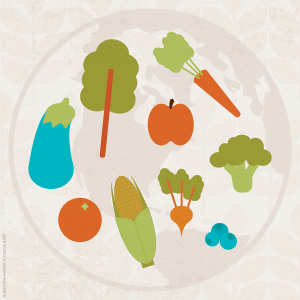
 As a small farm owner I can tell you that the struggle is real, and you need to hustle to make ends meet. More and more farmers are turning to events to add another revenue stream while marketing their brand and engaging the community. If you are getting started with your farm events – or maybe just trying to refresh your current efforts – you should take a few steps into consideration.
As a small farm owner I can tell you that the struggle is real, and you need to hustle to make ends meet. More and more farmers are turning to events to add another revenue stream while marketing their brand and engaging the community. If you are getting started with your farm events – or maybe just trying to refresh your current efforts – you should take a few steps into consideration.
Going it alone with Special Meal Events
If you have the knowledge, skills and resources you can consider hosting your own on-site special food events. You may still need a hand with the dishes, but at least you will be in the drivers seat. It may be difficult to get the buzz out about these types of events at first so don’t get discouraged. Stick to what you know and keep your number of guests where you can handle it – cooking for 6 people is very different from 12. Try finding events that are similar to what you want to do and attend a couple. Think of it as market research that involves delicious food, drink, and event some new friends. This is a great way to meet people that like to attend farm to table dinners and that is good for your budding new endeavor.
Power in Numbers, Collaborating Farm to Table
Pair with local restaurants and chefs to do exclusive farm to dinner events. You can start by researching the various dining establishments in your area. Research the different restaurants that host special events and try them out. Having a meal and drink at the place to get a feel for the style and quality is an important part of the vetting process. It far better to realize this earlier on in the game since it takes time to build regular event attendees and it can be rough to rebuild if the partnership ends. Talk to the chef and offer to provide some food for a special farm to table dinner at their place. Chefs obviously love food so make sure you select the best of what your farm has to offer for this meal. You can turn this event into a pairing dinner with a local.
Classes and Workshops
Many people want to learn how to farm – and the more small farms out there the better! Everyone is good at something, what are you/your farm exceptional at? Turn this into a lecturing farm tour, class, workshop, or demonstration. Perhaps you are exceptional at baking bread, or making wine? It’s crucial that you are extremely organized and prepare yourself well in advance for this. Once you have decided what you might be good at you can turn it into an event. If teaching is something you haven’t done before you should attend some different workshops, classes, or other educational events to get an idea of what you are up against. Teaching is in our basic human nature, but it may take some real soul searching for you to figure out if it’s for you. Brown Paper Tickets has many resources for putting together classes if you have any questions.
Think Outside the Box
Maybe mealtime events or teaching classes isn’t for you. The fact remains you still have some pretty exciting things happening on the farm. Hosting other unique events can still help build community and grow your farm business. Hayrides, pumpkin hurling, sack races, and corn mazes are also great options. Do you have a big open field and love the wind in your hair? Maybe a lawnmower race fits. Before you start busing droves of kids out to pick their own pumpkin, sit down and plan it out. Similar to the other event ideas shared in this post, you will want to go through the logistics of what you plan to do. Seeing your ideas on paper might help you get an idea of what specifically you are prepared for event wise.
Now you have an idea of how to get started. Remember if at first you don’t succeed give our resident event experts a call and let them help you get things going. Our friendly and knowledgeable staff is available 24 hours a day to assist you with every step of the process. From start to finish; from event creation to promotions, we’ve got you covered.
Contact our 24/7 Support Staff if you have any questions about creating your Farm event or class: 800-838-3006×4 or Support@BrownPaperTickets.com
Event Tips >



 Arts
Arts Comedy
Comedy Event Tips
Event Tips Film
Film Food & Drink
Food & Drink Good Causes
Good Causes Music
Music News
News Radio
Radio Roller Derby
Roller Derby